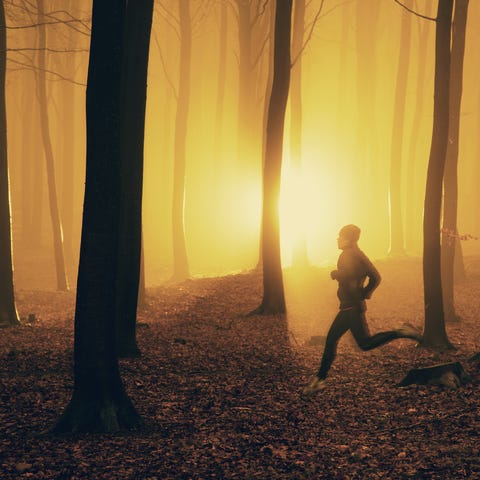The Best No-Drug Ways to Relieve Anxiety
Anxiety is everywhere: Almost a third of the population of the US will experience it at some point in their lives, according to the National Institute of Mental Health. And if you haven’t felt it yet, it may not wait long to come around: Nearly 40 percent of Americans said they were more anxious in 2018 than they had been the year before that, according to an American Psychological Association poll.
Of course, a great way to deal with anxiety is to tackle what’s giving it to you in the first place, or figure out less stressful ways to respond to it. But until you get good at that, or when you just need an immediate hit of calm, use these other science-tested tactics:
Forget being calm
If you’re not calm, telling yourself “I am calm” won’t feel true and useful. Try “I am excited” instead, and you might ace the situation that’s stressing you out. Research from Harvard found that people performed better at public speaking and math when they talked about excitement rather than calm (for public speaking, they said “I am excited”; when solving difficult math problems, they read the words “try to get excited”). By the way, this technique even made people better at karaoke, in case you ever need to know that (people who were told to say they were excited had better pitch, rhythm and volume than those who were told to say they were anxious, calm, angry, or sad).
Get moving
No surprise that exercise can take the edge off anxiety, but many people don’t realize how quickly it works. Even a single session of moderate-to-vigorous physical activity can reduce symptoms of short-term anxiety, like what you might feel around an event, according to the government’s Physical Activity Guidelines for Americans. Regular physical exercise can reduce longer-term anxiety. Anxious about what to do at the gym? Check out our best workouts.

David TroodGetty Images
Float around
Flotation tanks—shallow pools or water-filled tanks filled with Epsom salts—are filling gyms, spas, and “float centers” (all flotation all the time), and 2018 research published in PLoSOne suggests they can actually help take anxiety down. Basically, you lie there by yourself, in a dark environment, and just float, without any of the usual sensory stimulation or sense of gravity that bombards you in a day.
Consider chamomile
It’s a classic remedy for anxiety, and the herb has some scientific backing. A study by researchers at the University of Pennsylvania and Memorial Sloan-Kettering Cancer Center found that people with generalized anxiety disorder had fewer symptoms after taking a chamomile extract daily for eight weeks. There hasn’t been a lot of research on the anti-anxiety effects of drinking chamomile tea, but know this before you “go chamo”: people with allergies to ragweed, chrysanthemums, marigolds, or daisies might be allergic to chamomile, too. The herb may also interact with some drugs—find out more about interactions from the National Center for Complementary and Integrative Health.
Find yourself some nature
One Wisconsin study found that people who live in neighborhoods where less than 10 percent of the area was covered by tree canopy were more likely to have anxiety, stress, and depression. But you don’t have to move to get the benefits. Other research from Stanford University and UCSF found that people who did a 50-minute walk in a natural environment had decreased anxiety and rumination compared to people who did a similar walk in an urban setting.
Take those deep breaths everyone talks about
Scientists have been talking about the calming benefits of deep, diaphragmatic breathing at least since Herbert Benson at Harvard brought it up in the 1970s. Forty years later, it’s still worth doing. Some yoga practitioners and other wellness experts recommend one type of breathing over another, but the basic, diaphragmatic breath is one that you take where you feel your diaphragm go in and out rather than feel your chest go up and down. Learning to breathe better can even make you stronger.
Get mindful
You didn’t think we were going to do a piece on anxiety without mentioning mindfulness or meditation, did you? An often-cited 2010 review looked at what happened when people received mindfulness-based therapy and found that the effect of these therapies were “robust” when it came to improving anxiety. And John Kabat-Zinn, an emeritus of the University of Massachusetts, found long before that that mindfulness-based meditation reduced symptoms of anxiety. Studies on other forms of meditation, including TM (transcendental meditation), have found similar results. Swear you don’t have the time? Dan Harris shows you how to “do” mindfulness in just 60 seconds.
Know what’s up with CBD
One of the purported benefits of CBD in its many forms is anxiety reduction, but the marketing is far ahead of the science on that. If you’re looking for a science-tested strategy, CBD isn’t there yet.
See who else has anxiety
Chris Evans, Stephen Colbert, Charlamagne Tha God—they’re all talking about their anxiety. See what they have to say and know you’re far from alone.
Source: Read Full Article



